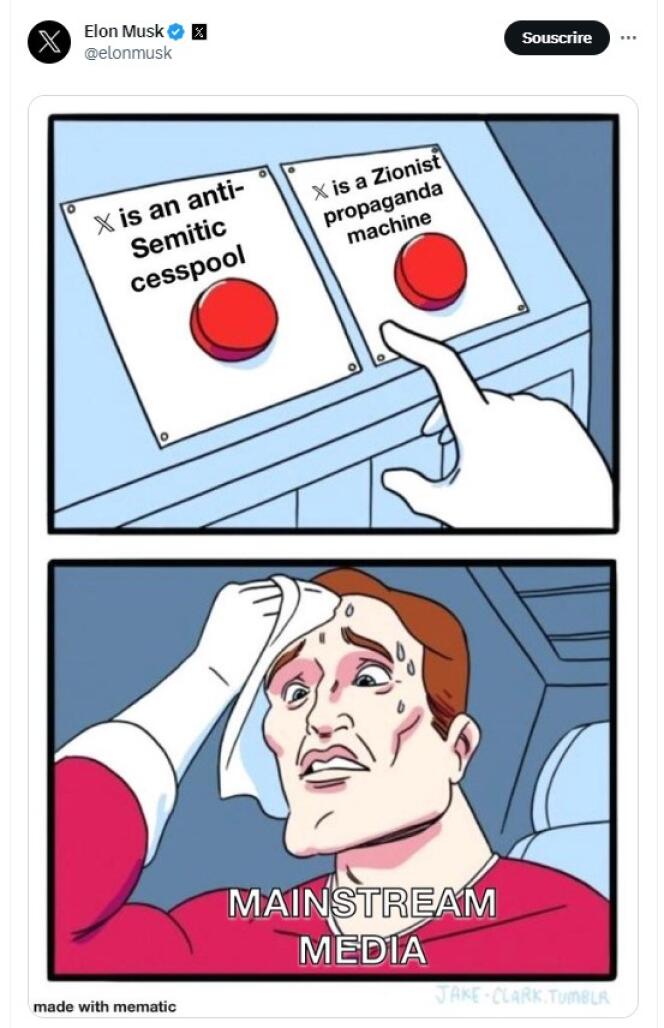Since the Hamas attack on Israel on October 7, and even more so since the start of the Israeli strikes on Gaza, social networks have been accused of siding either with the Palestinians or, more often, with Israel. There have been accusations of "censorship" or, at the very least, unequal treatment. As early as October 10, Elon Musk, the chairman of X (formerly Twitter), posted a meme on his personal account mocking the "mainstream media," which, he claimed, simultaneously accused his platform of being "an anti-Semitic cesspool" and "a Zionist propaganda machine."

More than the media, it is above all the users of the major social media platforms, and mainly Palestinians and defenders of the Palestinian cause, who have been behind the proliferation of "censorship" accusations leveled at platforms over the past week. A simple search on any social media network will bring up hundreds of accounts from users claiming to have been shadow banned: a practice that consists of not closing an account but reducing its visibility by limiting its appearance in news feeds or searches.
The practice of shadow banning exists on all the leading platforms, even if they all dispute the term, which is considered too loaded. On X, YouTube, Facebook or TikTok, accounts that have been the subject of numerous reports or have been repeatedly sanctioned for breaking the rules can find themselves partly made "invisible." Similarly, a post containing violent images or suspicious keywords will automatically be less widely circulated than average.
For the past week, it's mainly been TikTok and Instagram – two platforms very popular with teenagers and young adults – that have been accused of hiding pro-Palestinian messages, or even of "doing Israel's bidding." "The suggestion that we're trying to suppress a particular community or point of view is categorically untrue," replied Meta (owner of Instagram). "Our policies are designed to give everyone a voice while keeping people safe on our apps, and we apply these policies regardless of who is posting or their personal beliefs." The company also explained that it has corrected a bug that made certain Stories not very visible, but asserted that the problem had been widespread.
Similar rules across platforms
With the exception of the special case of Telegram, which does little or no moderation, all the major platforms have announced that they have applied very similar rules since the Hamas attack. TikTok, Instagram, Facebook and YouTube explain that they have deployed more moderators, including Hebrew or Arabic speakers; taken steps to limit live video broadcasts, which are more difficult to moderate; and say they apply "public interest rules" on a case-by-case basis. This may lead them to leave normally forbidden content online – typically graphic images that are evidence of an incident. X is the only major social media platform not to have announced an increase in its moderation staff. Since Elon Musk's takeover of the company a year ago, most of the service providers handling the site's moderation have not been retained.
You have 55.86% of this article left to read. The rest is for subscribers only.